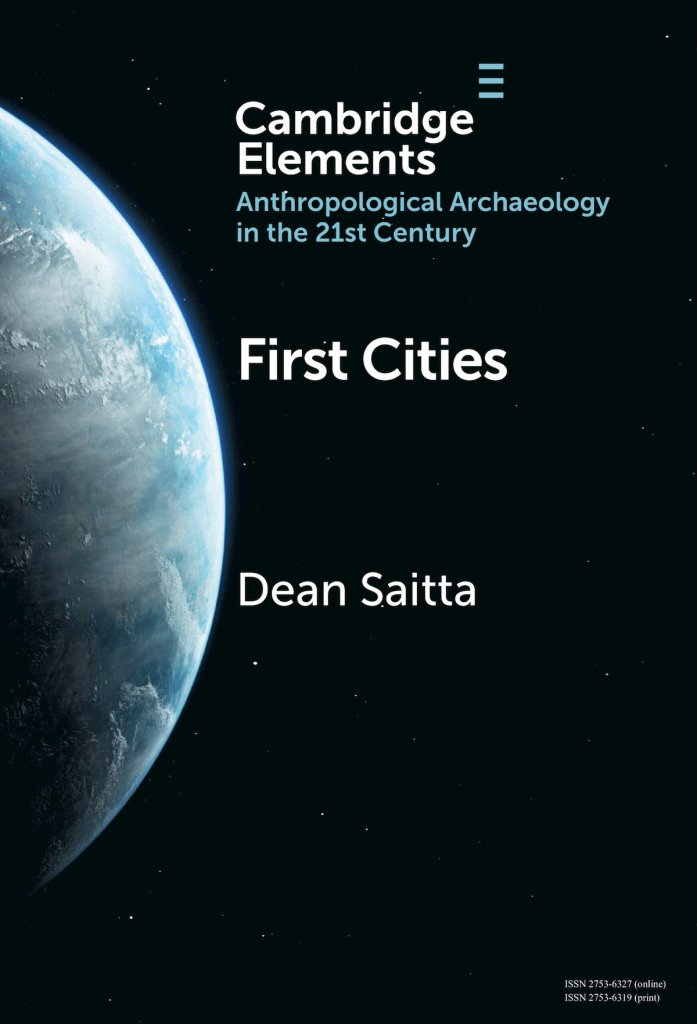A new book about urban planning in the deep human past explores principles, strategies, and lessons relevant for today.

During my nearly 12 years of posting essays for Planetizen I’ve tried to persuade readers that knowledge of cities in the deep human past has something to offer contemporary urban planners. My new book from Cambridge University Press brings together some of the insights and lessons that I find particularly compelling. The book is called First Cities: Planning Lessons for the 21st Century. It is available for free download until April 17, 2024. After that date it goes behind a paywall. A print version is also available.

The book is inspired by the vast literature in urban studies arguing that we need more and better knowledge of cities in history in order to deal with contemporary challenges around food security, service provision, health, housing, ethnic coexistence, governance, and sustainability. The need is critical given the effects on cities of pandemics and climate change, and the desire for more equitable cities spurred by insurgent movements for social justice. Practicing professionals—urban planners, designers, architects, and policymakers—are searching widely for new theories, models, and data that can inform contemporary practice. My book describes and synthesizes archaeological knowledge of humankind’s first cities for the purpose of expanding this body of source material. I examine archeological evidence from ancient Mesopotamia, Europe, Asia, Africa, and the Americas. The case studies cover more than 9,000 years of city building in the well-known heartlands of urban development as well as in lesser-known areas of the globe. I discuss the relevance of this knowledge for addressing the challenges mentioned above.
As you might expect, the ancient urban past offers no quick fixes for the problems that bedevil us today. The demographic size and spatial scale of ancient cities were different, as were the political economies that shaped their development. But archaeological knowledge can be used in the same way that any other body of knowledge about city planning can be used: to illuminate planning failures and successes, enrich debates about sustainable urban and architectural form, and inspire new imaginaries of what the city can be. I see great potential for learning from the deep past if we stay focused on general principles and strategies of city-building, work comparatively across multiple cases, and act on modest spatial scales via Richard Sennett's ‘seed planning’ or what Jaime Lerner described as ‘urban acupuncture’.
Ancient urban planners experimented with principles and strategies that presaged most of what exists in all contemporary urbanisms, including those described as ‘Green’, 'Regenerative', 'Smart', ‘Sustainable’ or, especially, ‘New’ urbanism. There are likely many more principles and strategies to be discovered as archaeological methods for investigating ancient cities improve and spatial data accumulates. The goal should be to identify ideas that can be ‘scaled-up’ to meet the various challenges of contemporary urban life. We also need to more widely share such knowledge across academic disciplines and the urban policy, planning, and placemaking professions. I hope that my book makes at least a small contribution to those efforts.

New Florida Law Curbs HOA Power
The legislation seeks to cut down on ‘absurd’ citations for low-level violations.

New Tennessee Law Allows No-Cost Incentives for Affordable Housing
Local governments in the Volunteer State can now offer developers incentives like increased density, lower parking requirements, and priority permitting for affordable housing projects.

Planners’ Complicity in Excessive Traffic Deaths
Professor Wes Marshall’s provocatively-titled new book, "Killed by a Traffic Engineer," has stimulated fierce debates. Are his criticisms justified? Let’s examine the degree that traffic engineers contribute to avoidable traffic deaths.

Study: Housing Crisis is About Affordability, not Supply
New research shows that there is no overall shortage of housing units, but all U.S. metropolitan areas face a severe lack of affordable units for low-income renters.

Are Race-Based Lawsuits Affecting Community Lenders?
Shelterforce spoke with community lending leaders and experts about the current mood across the sector. What, if anything, are organizations doing to avoid becoming the next target of conservative activists?

New Park Promotes Community and Connectivity in Lewisville, Texas
The city of Lewisville just celebrated the opening of Glory Park/Parque la Gloria, helping to improve park access and the quality of life for residents.
City of Madera
City of Santa Clarita
Borough of Carlisle
HUD's Office of Policy Development and Research
Chaddick Institute at DePaul University
HUD's Office of Policy Development and Research
Colorado Energy Office
Pima County Community College District
City of Piedmont, CA
Write for Planetizen
Urban Design for Planners 1: Software Tools
This six-course series explores essential urban design concepts using open source software and equips planners with the tools they need to participate fully in the urban design process.
Planning for Universal Design
Learn the tools for implementing Universal Design in planning regulations.



















.png?itok=e498Jk4q)

.png?itok=yhtuTpjq)





